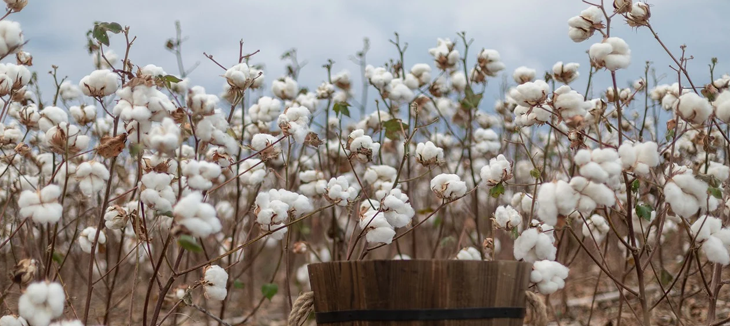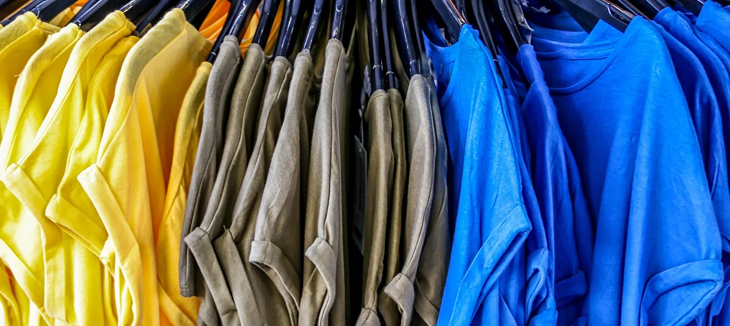
With an increased awareness of the environmental impact that people have on the planet comes the responsibility that as consumers we should use our buying power to make smarter purchases and influence the market towards being more eco-conscious.
In response, many retailers have introduced ethical options to their clothing ranges, ranging from switching to producing their products in ethical factories to selling entire lines made from organic cotton or recycled materials. Whilst some retail giants such as H&M have pledged to use 100% recycled or sustainably sourced materials in all of their products by 2030.
This transition is also being followed by brands outside of retail, with large companies like Spotify, as well as smaller businesses, choosing sustainable options for their team workwear and merchandise
Businesses sourcing products for their brand can now make more eco-conscious decisions as printing companies have started to introduce environmentally friendly t-shirt printing options. Some companies also use eco-friendly inks, which are perfect if you are looking for vegan t-shirt printing or organic screen printing. These small but powerful changes allow customers to reduce their impact on the environment without the associated high cost. Since our formation, we’ve had a focus on this side of the industry, providing sustainable printed t-shirts and clothing to businesses of all sizes.
We know that we should be making better purchasing choices, but with so many certifications and buzzwords, it feels like you are expected to choose organic or recycled garments without knowing exactly what the manufacturing processes entail.
Organic T-shirts

Organic cotton is a cotton fibre produced to certified agricultural standards. The natural production process removes the need for toxic chemicals and harmful genetically modified organisms (GMOs). This ensures the sustained health of ecosystems, the agricultural farmers and the soil by allowing for crop rotation.
Moreover, approximately 2,700 litres of water is needed to produce a single, conventional cotton t-shirt, organic cotton is 80% rain-fed, dramatically reducing the pressure on local water sources.
The Advantages of Organic T-shirt Printing
· Improved health of the environment
· Improved health and working environment of all workers in the supply chain
· Reduced water and energy consumption
· Controlled traceability along the supply chain
The Challenges
· Reduced yield per crop
· Time intensive
· Smaller global market for organic cotton than regular cotton
Recycled T-shirts

Cotton can be transformed by turning cotton fabric back into cotton fibres which can then be reused in new textile products. Recycled cotton can also be known as reclaimed or regenerated cotton.
There are two stages at which cotton can be recycled. They fall into the following categories:
Pre-Consumer or Post-Industrial
The scraps of fabrics that are discarded during the manufacturing process are collected and turned back into fibres ready to be reused in the production of new products.
Post-Consumption
Cotton products such as clothing or upholstery are recycled and the cotton fibres are repurposed in the creation of new products.
Pre-consumer waste produces the largest yield of recycled cotton as this is when it is in its purest form. Post-consumption cotton can sometimes be difficult to recycle due to the colour dyes or mix of fabrics added into the fabric in the manufacturing process. If a fabric has been through many add-on stages during manufacture, taking out the pure cotton can be like taking the eggs out of a cake- impossible.
Recycling Cotton T-Shirts Step-by-Step
· Fabric is sorted by colour
· The fabric is shredded into yarn and further reduced into fibres
· These fibres are re-spun onto bobbins ready for production
The integrity of the fibre can be damaged during this process. Often the fibres are not as soft and the reduced length can create the need for them to be mixed with other fibres during manufacture, which is why you will often find products that are made partly rather than completely with recycled cotton.
The Advantages of Recycled T-shirt Printing
· Reduces textile waste
· Reduces landfill waste
· Reduces water and energy wastage
· Reduces CO2 emissions
The Challenges with Recycled Cotton
· Reduced fibre integrity
· Higher cost
· Time intensive
· Small global market
The Performance
Cotton t-shirts are perfect for all-year-round wear. The lightweight material is breathable, keeping you cool in the summer and warm in the winter. Cotton is also hypoallergenic and is therefore a great choice for people with allergies or sensitive skin.
These qualities are not compromised in organic or recycled t-shirts, however, organic cotton may be the best choice if you require a soft feel fabric or increased durability.

Limitations
It’s worth noting that recycled cotton isn’t a silver bullet. While it does reduce the amount of waste going immediately to landfills, the fabric integrity is reduced every time it’s recycled. With this in mind, there is a limit to how many times cotton can be recycled.
The Bottom Line
Recycled and organic cotton are an excellent opportunity to reduce textile waste and save both water and energy that contribute to carbon emissions. However, there are still problems caused during production that affect their end usage and consequently the demand for the product that needs to be overcome.
It is not about choosing one over the other, rather it is about increasing demand for both options simultaneously. Measures need to be taken to continually improve the conditions under which cotton is grown, both for the people involved in the production process and for the environment. Further research and development is required to help improve the recycling process so that the end product is more desirable than in its original form.
Every responsible purchase made is a step towards a better future for the textile industry and for the planet. By choosing to buy just one eco-friendly t-shirt we are creating demand and putting pressure on the industry to choose alternatives that can limit the damage we inflict on the environment, whilst helping the textiles industry become as sustainable as it seeks and needs to be.

